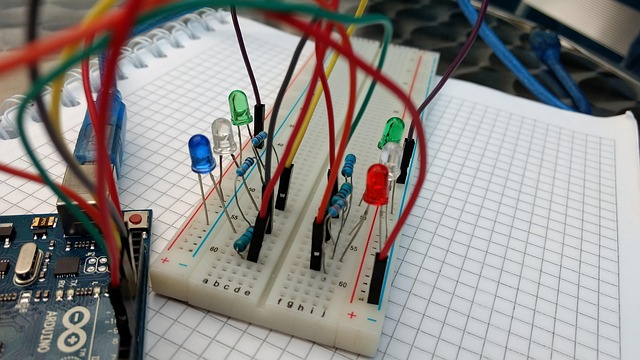Exploring the Future of Business with Programmable Adaptive Algorithms
In today’s fast-paced business landscape, the integration of technology is no longer a luxury but a necessity. The drive for automation has reshaped industries, creating opportunities for efficiency and innovation. At the forefront of this transformation are programmable adaptive algorithms, a powerful tool that is redefining the roles of robotics and artificial intelligence in business.
The Essence of Adaptation
Adaptation is the key to survival in any environment, and this principle holds true for businesses navigating the complexities of the modern world. As organizations face constant changes in consumer behavior, market demands, and technological advancements, the ability to adapt quickly can set a company apart from its competitors. Programmable adaptive algorithms empower businesses to respond dynamically to these changes, harnessing the power of AI and robotics.
Robotics: The Backbone of Automation
Robotics is revolutionizing how tasks are performed across various industries. From manufacturing to healthcare, robots equipped with programmable adaptive algorithms can learn from their environments, adjusting their actions based on real-time data. This not only enhances productivity but also minimizes errors, allowing businesses to streamline operations. Imagine a warehouse where robots can optimize pick-and-pack processes by adapting to inventory changes on the fly; this is not just a vision, but a reality being cultivated through intelligent algorithms.
The Role of Artificial Intelligence
Artificial intelligence adds another layer of sophistication to the automation equation. With programmable adaptive algorithms, AI systems can analyze vast amounts of data, recognizing patterns and trends that humans might overlook. This insight translates into actionable strategies for businesses, from predicting customer preferences to enhancing supply chain efficiency. For instance, AI can optimize marketing campaigns by adapting messages based on consumer interactions, thereby increasing engagement and sales.
Automating Business Processes
Business automation goes beyond mere efficiency; it embodies a cultural shift towards innovation and agility. By implementing programmable adaptive algorithms, organizations can automate repetitive tasks, freeing up human resources for more strategic and creative pursuits. This is particularly important in sectors where time is of the essence, such as finance and customer service. Chatbots powered by adaptive algorithms can provide instant support to customers, learning from interactions to improve over time, thus enhancing user experience and satisfaction.
Embracing the Change
The future of business automation is not just about technology—it’s about empowering people. As companies adopt programmable adaptive algorithms, they cultivate a productive environment, where employees can focus on higher-level tasks that require critical thinking and creativity. The evolution of AI and robotics continues to inspire a new way of working, where collaboration between humans and machines leads to unprecedented outcomes.
As we embrace this transformative era, it’s essential for businesses to invest in the right technology and foster a culture of adaptability. Those who harness the potential of programmable adaptive algorithms in their robotics and AI strategies will not only survive but thrive in the face of future challenges.



